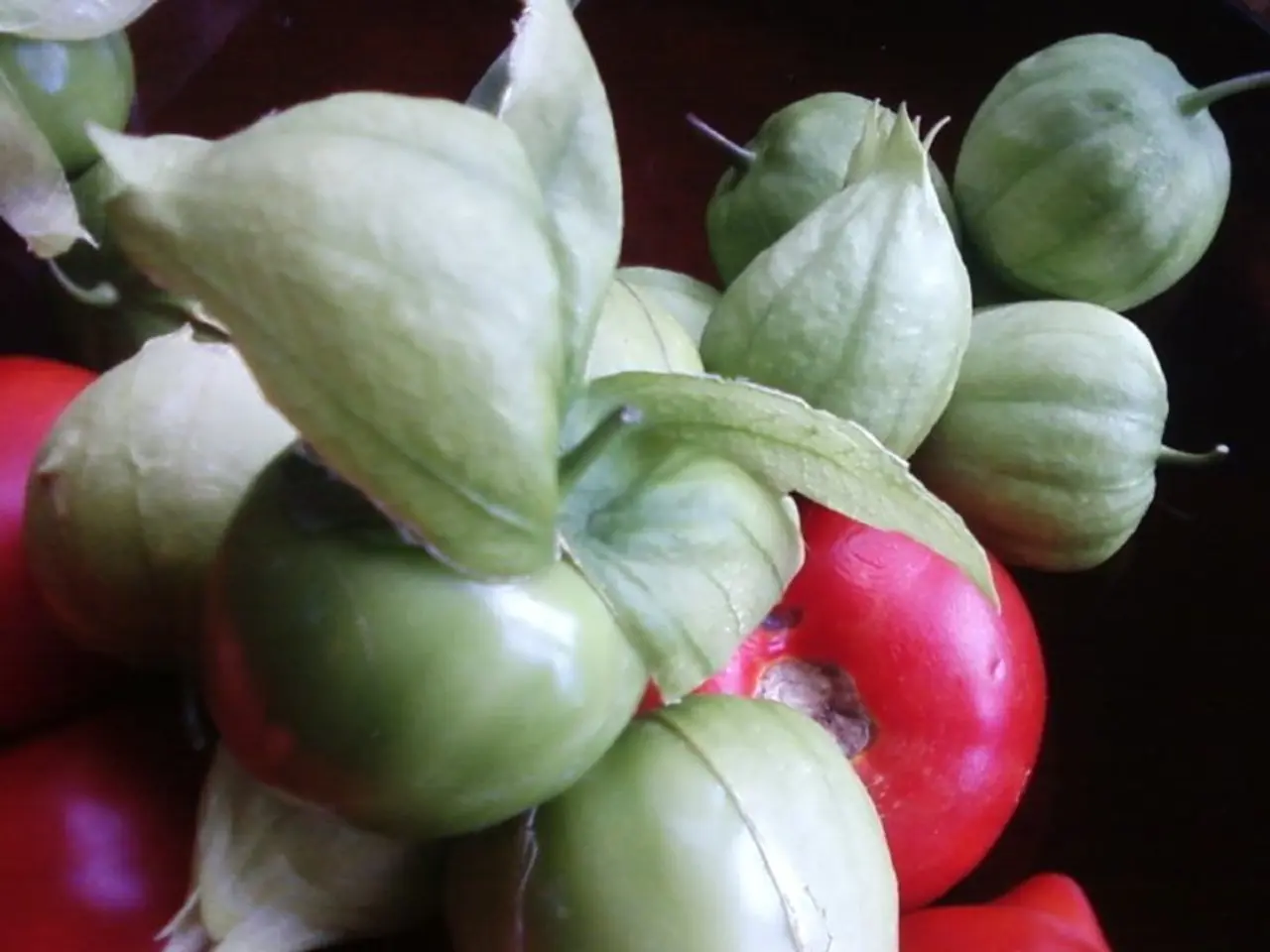Most Nourishing Vegetable Seeds Suitable for Planting This Summer Season
In today's world, where health and wellness are at the forefront of many people's minds, growing a vegetable garden can be a rewarding and beneficial endeavour. By cultivating a thriving garden focusing on tomatoes, okra, onions, bell peppers, apple gourd, bitter gourd, and pumpkin, you can enjoy fresh, organic produce while reaping the numerous health benefits these vegetables offer.
To create a flourishing vegetable garden, consider the following key factors:
**Ideal Soil Type**
A well-draining soil rich in organic matter is essential for healthy growth. Incorporating compost or manure can improve soil fertility and structure. Aim for a slightly acidic to neutral pH around 6.0 to 7.0, suitable for most vegetables.
**Sunlight Requirements**
These vegetables generally require full sun, meaning 6 to 8 hours or more of direct sunlight daily, to ensure good growth and high yields. Insufficient light can slow growth and reduce productivity.
**Water Needs**
Water deeply and thoroughly 1 to 3 times a week rather than frequent shallow watering. This encourages deep root growth and prevents issues like root rot and nutrient deficiency. Most vegetable gardens need about 1 to 2 inches of water weekly. Adjust watering based on rainfall and soil moisture—poke 2 inches into the soil; if dry, it’s time to water. Water early morning or late afternoon to reduce evaporation and avoid wetting leaves to prevent fungal diseases. Mulching helps retain soil moisture and reduce watering frequency.
**Specific Plant Notes**
- Tomatoes benefit from consistent moisture to prevent blossom end rot and fruit splitting. - Apple gourd, bitter gourd, and pumpkin like warm soils, so ensure good sun exposure and well-drained soil. - Bell peppers and okra thrive in warm conditions with steady moisture. - Onions prefer well-prepared soil with good organic content and consistent watering but avoid waterlogging.
**Health Benefits**
- Tomatoes are rich in vitamins C, K, potassium, and antioxidants like lycopene, supporting heart health and reducing cancer risk. - Apple gourd is a good source of dietary fiber and vitamins, aiding digestion and immune function. - Bitter gourd is known for blood sugar regulation, vitamins C and A, and antioxidant properties. - Bell peppers are high in vitamin C and antioxidants, beneficial for immune health. - Okra contains fiber, vitamins C and K, and antioxidants that support digestion and cardiovascular health. - Onions contain anti-inflammatory compounds and antioxidants that may promote heart and bone health. - Pumpkin is rich in beta-carotene (vitamin A), fiber, and antioxidants, supporting eye health and immunity.
By ensuring well-prepared soil, appropriate watering, full sunlight, and regular care, you can cultivate a productive and healthy vegetable garden rich in nutrients beneficial to human health. Growing vegetables ensures the use of fresh and organic materials in cooking, and with the wide variety of vegetables available, you can experiment with different flavours and dishes. Enjoy the satisfaction of growing your own nutrient-rich produce and reaping the benefits for both your garden and your health.
- For a thriving vegetable garden, invest in soil rich in organic matter, with a pH ranging from 6.0 to 7.0, to promote healthy plant growth.
- To ensure good growth and high yields, position your vegetable garden to receive 6 to 8 hours or more of direct sunlight daily.
- Water your vegetable garden deeply and thoroughly 1 to 3 times a week to encourage deep root growth and prevent issues like root rot and nutrient deficiency.
- Tomatoes in your garden will thrive with consistent moisture to prevent blossom end rot and fruit splitting.
- Consider the specific needs of your plants, like the warm soils and good sun exposure required by apple gourd, bitter gourd, and pumpkin.
- Explore the health benefits of your home-grown vegetables, such as the heart health and reduced cancer risk from tomatoes, the digestive aid and immune function benefits from apple gourd, and the blood sugar regulation and anti-oxidant properties of bitter gourd.
- To align with a healthy and organic lifestyle, embrace gardening as a skill, nurturing your succulent vegetables on your terrace or within your home-and-garden space, for a more rewarding cooking experience and numerous health benefits.




